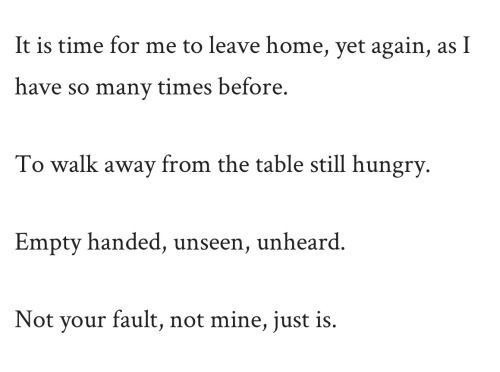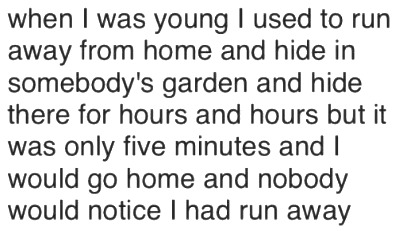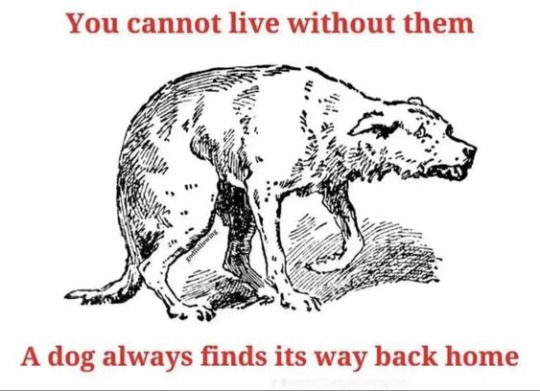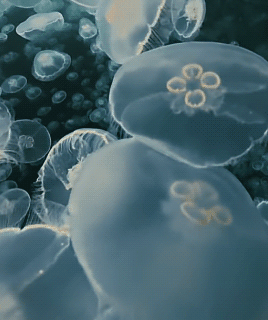#daughters of narcissistic mothers
Explore tagged Tumblr posts
Text

Whatever today evokes in you is valid. 🖤 "Every family loves differently. Every love is unique."
So, let's just celebrate our Murder MILFs.
#hannibal and will#hannibal nbc#hannigram#will graham#hannibal lecter#nbc hannibal#murder husbands#murder mothers#milfs and dilfs#feeling paternal will#pointlessly gendered#daughters of narcissistic mothers#my dad killed my dad#my mom killed my dad#hannibal memes#abigail hobbs#will graham my beloved#world's worst mothers#surrogate daughter
4 notes
·
View notes
Text
Three years ago, I almost died. I have a severe anaphylactic allergy to an ingredient in dyes. I learnt this the hard way- the hospital way. The multiple-doctors-pumping-me-with-meds-to-keep-me-alive sort of way. I didn't tell any biological family that I'd nearly died until a week after getting out of hospital, as I was swollen to the point of being disfigured, and didn't feel like dealing with guests. When I told my father, and explained what it meant for me moving forward and the restrictions I now have to live with, like potentially being unable to get more tattoos in future, he replied with "Good." He himself has an anaphylaxis allergy. He's been hospitalised a couple of times due to his allergy. He knows how terrifying anaphylaxis is. He knows. "Good." Some days the guilt of estrangement is crushing, a huge weight upon my chest, a self-flagellation of shame. I feel so bad for cutting off my elderly father, knowing that he says I am his "purpose in life"- and then some days I remember.
I remember that he tried to drown me as a child. I remember the drug and alcohol abuse that featured through most of my childhood. I remember the physical violence he inflicted. I remember that he didn't come visit me after I'd told him that I'd nearly died. He didn't even ask how I was feeling. He didn't call to check up on me. He didn't ask how I was healing, or show any empathy at all. I remember that he told me "good." "Good."

#daughters of narcissistic mothers#child abuse#child abuse survivor#estranged#no contact#donam#daughters of narcissistic fathers#donaf#anaphylaxis#allergies#allergic#epipen#estrangement#estranged child#estranged family#drowning#bad parenting#neglect#tw abuse#emotional abuse
7 notes
·
View notes
Text
Me and my egg donor's other children rolling up to her funeral like

#toxic mother#toxic parents#narcissistic abuse#narcissistic parents#narcissistic mother#narcissist#daughters of narcissistic mothers
1 note
·
View note
Text



Elizabeth Wurtzel in Prozac Nation (2001)
#my stuff#film tumblr#women in film#elizabeth wurtzel#prozac nation#gloomy coquette#lana del rey aesthetic#lana del rey#girlblog#eldest daughter#eldest sibling#eldest child#narcissistic mother#girlblog aesthetic#girlhood#im just a girl#female hysteria#feminine urge#feminine rage#girlrotting#hell is a teenage girl#this is what makes us girls#girlblogging#girl interrupted#manic pixie dream girl#cinnamon girl#sadgirl#2014 tumblr#2014 aesthetic#2014 grunge
648 notes
·
View notes
Text








Katie Maria / Katherine Fabrizio A Poem From the Adult Daughter to the Narcissistic Mother: Not Your Fault, Not Mine, Just Is / pinterest / Annie Ernaux / Christina Bothwell Incessant Dreamer (2022) / pinterest / pinterest / pinterest
#more venting lol#on childhood#on growing up#on mothers#on fathers#katie maria#katherine fabrizio#a poem from the adult daughter to the narcissistic mother#not your fault not mine just is#annie ernaux#christina bothwell#incessant dreamer#poem#spilled poetry#spilled thoughts#spilled ink#dark academia#words#dark academia poetry#writing#dark academia quote#poetry#on loneliness#on sadness#on emotion
352 notes
·
View notes
Text
I wish I could meet you in the street
Maybe one of us will be lost and would stop the other to ask for directions
We will share a laugh on how we are the worst people to ask for directions
You would feel comfortable enough to have coffee with me
I would remind you of your daughter that looks like me
Maybe you would say some kind words about her
Maybe you would ask me for advice on being a better mother
Maybe if I met you as a woman and not a mother we would like each other
I pray that you never know how much you hurt me
I hope you never realize how you tortured and broke me every day
It would kill you mother
I hope you never know
#sadnees#tw depressing thoughts#depressing shit#tw depressing stuff#mother#did you miss me?#childhood ptsd#childhood truama#crying child#inner child#child abuse#tw abuse#narcissistic abuse#emotional abuse#toxic parents#i am in pain#generational truama#truamacore#tw truama#tw ptsd#ptsd vent#living with ptsd#trauma#mentally fucked#thought daughter#deppressed#past lives#you broke my heart#please help#healing
27 notes
·
View notes
Text
I look in the mirror and I see my mother staring back at me;
is this all I’ll ever become or am I what she could’ve been?
- I cannot tell and neither can she
#excerpt from a book i'll never write#writblr#writers and poets#writerscommunity#writerslife#poems and quotes#book quotes#booknerd#poems and poetry#poetry#mother#narcissist#elder sister#eldest daughter
19 notes
·
View notes
Text


"you still belong to me"
#mother daughter issues#mother daughter relationship#white oleander#mother!#narcissistic mother#narc mom#astrid magnussen#ingrid magnussen#alison lohman#michelle pfeiffer#girl interrupted#girl problems#pale grunge#thirteen movie#thirteen 2003#thirteen#disorganized attachment#lizzy grant#lana del rey#female experience#my post
53 notes
·
View notes
Text
In a home where cold indifference finds its place,
A child lights a flame with a fragile grace.
Burning memories of what could have been,
To warmth the heart that once locked within.
Seeking solace in the fire's glow,
A warmth they'd never come to know.
In the crackling grow, they find a space,
A fleeting comfort in the fire's embrace.

#childhood emotional neglect#childhood trauma#neurodivergent#original poem#poem#toxic parents#youngest daughter#psychological abuse#mommy issues#daddy issues#trauma recovery#living with cptsd#absent father#narcissistic mother
13 notes
·
View notes
Text
Topics Of Childhood Traumas Endured From An Abusive Narcissistic Mother: Knowledge For Self Awareness

The Complex & Challenging World of Narcissistic Mothers
Narcissistic mothers are individuals who have a narcissistic personality disorder, which is characterized by an inflated sense of self-importance, a need for admiration, and a lack of empathy for others. When this disorder is present in a mother, it can have a profound impact on her children, shaping their self-esteem, emotional well-being, and relationships.
Common Traits of Narcissistic Mothers
Narcissistic mothers often exhibit certain traits that can be damaging to their children. Some of these traits include:
1. *Self-centeredness*: Narcissistic mothers tend to be extremely self-focused, prioritizing their own needs and desires above those of their children.
2. *Emotional unavailability*: They may be emotionally distant or unresponsive to their children's needs, leaving them feeling unheard, unseen, and un validated.
3. *Criticism and blame*: Narcissistic mothers often criticize and blame their children, making them feel inadequate, worthless, or responsible for their mother's emotions.
4. *Gaslighting*: They may manipulate their children's perceptions, making them doubt their own sanity, memory, or experiences.
5. *Emotional manipulation*: Narcissistic mothers may use guilt, anger, or self-pity to control their children's emotions and behaviors.
6. *Lack of boundaries*: They may have difficulty respecting their children's boundaries, leading to emotional overload, invasion of privacy, or exploitation.
7. *Grandiosity*: Narcissistic mothers may have an exaggerated sense of self-importance, expecting special treatment, admiration, or automatic compliance from their children.
The Impact on Children
Growing up with a narcissistic mother can have long-lasting effects on a child's emotional and psychological well-being. Some common consequences include:
1. *Low self-esteem*: Children of narcissistic mothers may struggle with self-doubt, self-worth, and confidence.
2. *Anxiety and depression*: The emotional turmoil and unpredictability of a narcissistic mother can lead to anxiety, depression, or other mental health issues.
3. *People-pleasing*: Children may develop people-pleasing tendencies, trying to appease their mother's demands and avoid conflict.
4. *Difficulty with boundaries*: They may struggle to set and maintain healthy boundaries in their own relationships, leading to emotional exhaustion or exploitation.
5. *Trauma and stress*: The chronic stress and emotional manipulation of a narcissistic mother can lead to trauma, PTSD, or C-PTSD.

The Enablers of Narcissistic Mothers: Understanding the Complex Web of Manipulation
Narcissistic mothers often have a network of enablers who support and enable their behavior, often unintentionally. These enablers can be family members, friends, or even mental health professionals who are manipulated by the narcissistic mother's charm, guilt, and emotional blackmail.

Who are the Enablers?
Enablers of narcissistic mothers can include:
1. _The Father or Partner_: The father or partner of the narcissistic mother may be an enabler, often due to their own fear of conflict, desire to maintain peace, or lack of understanding of the narcissistic personality disorder.
2. _Siblings_: Siblings of the narcissistic mother's children may be enablers, often due to their own feelings of guilt, loyalty, or fear of being targeted by the narcissistic mother's anger.
3. _Extended Family Members_: Extended family members, such as grandparents, aunts, or uncles, may be enablers, often due to their own lack of understanding of the narcissistic personality disorder or their desire to maintain family harmony.
4. _Friends_: Friends of the narcissistic mother may be enablers, often due to their own admiration of the mother's charm, intelligence, or accomplishments.
5. _Mental Health Professionals_: Unfortunately, some mental health professionals may be enablers, often due to their own lack of training or experience in working with narcissistic personality disorder.
How are Enablers Manipulated?
Enablers are often manipulated by the narcissistic mother's:
1. _Charm_: Narcissistic mothers can be extremely charming and charismatic, making it difficult for enablers to see their true nature.
2. _Guilt_: Narcissistic mothers often use guilt to manipulate enablers, making them feel responsible for their emotions, needs, or behaviors.
3. _Emotional Blackmail_: Narcissistic mothers may use emotional blackmail to control enablers, threatening to withdraw their love, attention, or approval if they don't comply with their demands.
4. _Gaslighting_: Narcissistic mothers may use gaslighting tactics to manipulate enablers, making them doubt their own perceptions, memories, or sanity.
5. _Playing the Victim_: Narcissistic mothers often play the victim, making enablers feel sorry for them and more likely to support and enable their behavior.

Impact of Enablers on Targeted Victims
The presence of enablers can have a significant impact on the victims of narcissistic mothers, including:
1. _Increased Isolation_: Enablers can isolate victims from support and resources, making it more difficult for them to seek help or escape the abusive situation.
2. _Validating the Narcissistic Mother's Behavior_: Enablers can validate the narcissistic mother's behavior, making victims feel like they are the problem, rather than the mother's behavior.
3. _Reducing Accountability_: Enablers can reduce the narcissistic mother's accountability, allowing her to continue her abusive behavior without consequences.
4. _Increasing Stress and Trauma_: The presence of enablers can increase stress and trauma for victims, making it more difficult for them to cope with the abusive situation.

The Complex and Challenging Relationship Between a Narcissist Mother & an Empathetic Daughter
The relationship between a narcissist mother and an empathetic daughter can be particularly complex and challenging. The narcissist mother's need for admiration, attention, and control can clash with the empathetic daughter's natural inclination to understand, support, and please others.
Characteristics of the Empathetic Daughter
Empathetic daughters of narcissist mothers often exhibit certain characteristics, including:
1. _High emotional sensitivity_: They may be highly attuned to the emotions of others, including their mother's, and feel a strong need to respond to and manage those emotions.
2. _Strong sense of responsibility_: They may feel a deep sense of responsibility to care for and support their mother, even if it means sacrificing their own needs and desires.
3. _Tendency to people-please_: They may strive to please their mother and avoid conflict, even if it means compromising their own values and boundaries.
4. _Difficulty setting boundaries_: They may struggle to set and maintain healthy boundaries with their mother, leading to emotional overload and burnout.
5. _Self-doubt and self-blame_: They may doubt their own perceptions, feelings, and needs, and blame themselves for their mother's behavior.
The Narcissist Mother's Impact on the Empathetic Daughter
The narcissist mother's behavior can have a profound impact on the empathetic daughter, including:
1. _Emotional manipulation_: The mother may use guilt, anger, or self-pity to control and manipulate the daughter's emotions and behaviors.
2. _Gaslighting_: The mother may deny or distort reality, making the daughter question her own perceptions and sanity.
3. _Emotional invalidation_: The mother may dismiss or minimize the daughter's feelings and needs, making her feel unheard and un validated.
4. _Lack of emotional support_: The mother may be unavailable or unresponsive to the daughter's emotional needs, leaving her feeling alone and unsupported.
5. _Trauma and stress_: The chronic stress and emotional manipulation of the narcissist mother can lead to trauma, anxiety, and depression in the empathetic daughter.
Tips for Empathetic Daughters
1. _Practice self-compassion_: Treat yourself with kindness, understanding, and patience, just as you would a close friend.
2. _Develop a growth mindset_: Recognize that you are capable of growth, change, and development, and that you deserve to live a fulfilling and happy life.
3. _Surround yourself with positive role models_: Seek out positive, supportive relationships with people who uplift and encourage you.
4. _Focus on your strengths_: Celebrate your accomplishments, skills, and talents, and recognize your worth and value as a person.
5. _Create a safe and nurturing environment_: Surround yourself with people, places, and things that bring you joy, comfort, and peace.
Remember, healing from a narcissist mother's behavior takes time, patience, and support. Be gentle with yourself, and don't hesitate to reach out for help when you need it.
The Complex and Hurtful Behavior of Narcissistic Mothers Towards Their Children
Narcissistic mothers often treat their children poorly, and their behavior can be particularly hurtful and damaging to their daughters. There are several reasons why a narcissistic mother may treat her children, especially her daughter, poorly:
1. _Jealousy and Competition_: Narcissistic mothers may feel jealous of their daughter's youth, beauty, and potential, and may compete with her for attention and admiration.
2. _Fear of Being Replaced_: A narcissistic mother may fear that her daughter will replace her as the center of attention, and may try to undermine her daughter's confidence and self-esteem to prevent this from happening.
3. _Lack of Empathy_: Narcissistic mothers often lack empathy and may not be able to understand or relate to their daughter's feelings and needs.
4. _Need for Control_: Narcissistic mothers may use their children, especially their daughter, as a way to exert control and power over someone else's life.
5. _Unresolved Childhood Issues_: A narcissistic mother may have unresolved childhood issues, such as trauma or neglect, that she is now acting out on her own daughter.
6. _Societal and Cultural Pressures_: Narcissistic mothers may be influenced by societal and cultural pressures that emphasize the importance of physical appearance, achievement, and conformity, and may try to mold their daughter into a perfect reflection of themselves.
7. _Insecurity and Self-Doubt_: Despite their grandiose exterior, narcissistic mothers may be insecure and self-doubting, and may take out their feelings of inadequacy on their daughter.
Why the Daughter May Be Targeted More Than the Mothers Sons
Daughters of narcissistic mothers may be targeted more than sons for several reasons:
1. _Societal Expectations_: Daughters are often expected to be more nurturing and caring, and may be held to a higher standard of emotional labor and responsibility.
2. _Competition for Attention_: Daughters may be seen as competitors for attention and admiration, and may be treated poorly as a result.
3. _Similarity and Identification_: Daughters may be more likely to identify with their mother and strive to please her, which can make them more vulnerable to their mother's manipulation and abuse.
4. _Lack of Male Role Models_: In some cases, the absence of a positive male role model may contribute to the daughter being targeted more than the sons.
The Impact on the Daughter
The impact of a narcissistic mother's behavior on her daughter can be severe and long-lasting, including:
1. _Low Self-Esteem_: Daughters of narcissistic mothers may struggle with low self-esteem and self-doubt, and may feel unworthy of love and attention.
2. _Anxiety and Depression_: The chronic stress and emotional manipulation of a narcissistic mother can lead to anxiety, depression, and other mental health issues.
3. _Difficulty with Relationships_: Daughters of narcissistic mothers may struggle with relationships, including romantic relationships, friendships, and family relationships.
4. _People-Pleasing and Codependency_: Daughters of narcissistic mothers may develop people-pleasing and codependent tendencies, and may struggle to set healthy boundaries and prioritize their own needs.

The Manipulative Tactics of Narcissistic Mothers: Why They May Discourage Their Daughter's Happiness and Progress
Narcissistic mothers often use manipulative tactics to control and influence their daughter's decisions, even if it means discouraging their daughter's happiness and progress. Here are some possible reasons why a narcissistic mother might tell her daughter to stop seeing someone who is good for her or to stop doing something that brings her daughter happiness and purpose:
1. _Fear of Loss of Control_: Narcissistic mothers may feel threatened by their daughter's independence and autonomy, and may try to control their daughter's decisions to maintain a sense of power and dominance.
2. _Jealousy and Envy_: Narcissistic mothers may be jealous of their daughter's happiness and success, and may feel envious of the attention and admiration their daughter receives from others.
3. _Need for Drama and Attention_: Narcissistic mothers may create drama and conflict to get attention and sympathy from their daughter, and may use guilt and emotional manipulation to control their daughter's decisions.
4. _Lack of Empathy and Understanding_: Narcissistic mothers may not be able to understand or relate to their daughter's feelings and needs, and may prioritize their own desires and expectations over their daughter's happiness and well-being.
5. _Fear of Being Replaced_: Narcissistic mothers may fear that their daughter's happiness and success will lead to their daughter becoming more independent and less reliant on them, and may try to sabotage their daughter's relationships and goals to maintain a sense of control and importance.
6. _Unrealistic Expectations_: Narcissistic mothers may have unrealistic expectations for their daughter's life and relationships, and may try to impose their own values and beliefs on their daughter, even if it means discouraging their daughter's happiness and progress.
7. _Gaslighting and Emotional Manipulation_: Narcissistic mothers may use gaslighting and emotional manipulation to make their daughter doubt their own perceptions and decisions, and may try to convince their daughter that they are not capable of making good choices or achieving their goals.
Why Narcissistic Mothers May Use Reassurances of Love to Manipulate Their Daughter
Narcissistic mothers may use reassurances of love to manipulate their daughter into doing what they want, even if it means discouraging their daughter's happiness and progress. Here are some possible reasons why:
1. _Emotional Blackmail_: Narcissistic mothers may use emotional blackmail to control their daughter's decisions, by making their daughter feel guilty or obligated to do what they want in order to prove their love and devotion.
2. _Gaslighting and Manipulation_: Narcissistic mothers may use gaslighting and manipulation to make their daughter doubt their own perceptions and decisions, and may try to convince their daughter that they are acting in their best interests, even if it means discouraging their daughter's happiness and progress.
3. _Lack of Boundaries_: Narcissistic mothers may not respect their daughter's boundaries or autonomy, and may use reassurances of love to justify their intrusive and controlling behavior.
4. _Need for Validation_: Narcissistic mothers may need validation and admiration from their daughter, and may use reassurances of love to manipulate their daughter into providing them with the attention and praise they crave.
The Complex and Manipulative Behavior of Narcissistic Mothers: Buying Love and Guilt-Tripping Their Children
Narcissistic mothers often use gifts and material possessions to buy their children's love and affection, and to manipulate them into feeling guilty and obligated to reciprocate with attention and devotion. This behavior can be particularly damaging to children, as it can create a sense of entitlement, guilt, and anxiety, and can undermine their self-esteem and autonomy.
Why Narcissistic Mothers Need to Buy Their Children's Love
Narcissistic mothers may need to buy their children's love for several reasons:
1. _Insecurities and Low Self-Esteem_: Narcissistic mothers may have deep-seated insecurities and low self-esteem, and may use gifts and material possessions to compensate for their feelings of inadequacy and to seek validation from their children.
2. _Need for Control and Power_: Narcissistic mothers may use gifts and material possessions to control and manipulate their children, and to maintain a sense of power and dominance in the relationship.
3. _Fear of Abandonment and Rejection_: Narcissistic mothers may fear that their children will abandon or reject them if they don't provide them with gifts and material possessions, and may use these tactics to keep their children emotionally invested in the relationship.
4. _Lack of Emotional Intimacy_: Narcissistic mothers may struggle with emotional intimacy and may use gifts and material possessions as a substitute for genuine emotional connection and affection.
The Impact on Children When Narcissistic Mothers Buy Their Love
The impact of a narcissistic mother's behavior on their children can be severe and long-lasting, including:
1. _Guilt and Anxiety_: Children may feel guilty and anxious about accepting gifts and material possessions from their mother, and may worry about being able to reciprocate or repay her in some way.
2. _Entitlement and Expectations_: Children may develop a sense of entitlement and expectation, and may feel that they deserve to be given gifts and material possessions without having to earn or work for them.
3. _Low Self-Esteem and Self-Worth_: Children may struggle with low self-esteem and self-worth, and may feel that their value and worth are tied to the gifts and material possessions they receive from their mother.
4. _Difficulty with Boundaries and Assertiveness_: Children may struggle with setting and maintaining healthy boundaries, and may have difficulty asserting their own needs and desires in the face of their mother's manipulative behavior.
The Age-Old Question: Can a Narcissistic Mother Truly Love Her Child?
This is a question that has puzzled many adult children of narcissistic mothers, and one that has sparked intense debate and discussion. Based on our conversation and the information shared, I'll offer my perspective on this complex issue.
Is a Narcissistic Mother’s Love Actually Love?
Narcissistic mothers are capable of experiencing strong emotions, including affection, attachment, and even what may appear to be love. However, their love is often conditional, self-serving, and transactional. They may use their child as a source of narcissistic supply, which means they rely on their child to fulfill their emotional needs, validate their self-worth, and provide a sense of importance.
In many cases, a narcissistic mother's "love" is actually a manifestation of her own self-interest, rather than a genuine, unconditional love for her child. She may use guilt, manipulation, and emotional blackmail to control her child's behavior and ensure they remain devoted to her.
Does My Narcissistic Mother Hate Me More Than She Loves Me?
It's possible that your narcissistic mother's behavior towards you is driven more by a desire to control and manipulate you, rather than a genuine hatred or love for you. Narcissistic mothers often struggle with intense emotions, including anger, resentment, and jealousy, which can be directed towards their child.
However, it's essential to remember that a narcissistic mother's behavior is not necessarily a reflection of your worth or lovability. Her actions and words are often a projection of her own insecurities, fears, and unmet emotional needs.
Is my Narcissistic Mother Capable of Love?
While narcissistic mothers can experience strong emotions, their capacity for genuine, unconditional love is often impaired. They may struggle to empathize with their child's feelings, needs, and desires, and may prioritize their own interests over their child's well-being.
In some cases, a narcissistic mother may be capable of loving her child in a limited, self-serving way, but this love is often tainted by her own narcissistic tendencies. She may use her child as a means to fulfill her own emotional needs, rather than prioritizing her child's needs and well-being.
What Does This Mean for You?
It's essential to recognize that your narcissistic mother's behavior is not a reflection of your worth or lovability. You deserve to be loved, respected, and valued for who you are, and it's crucial to prioritize your own emotional well-being and seek out positive, supportive relationships.
Remember that you can't change your mother's behavior or force her to love you in a healthy, unconditional way. However, you can take steps to protect yourself from her toxic behavior, set boundaries, and cultivate a sense of self-worth and self-love that is independent of her opinions or actions.
Ultimately, the question of whether your narcissistic mother truly loves you is complex and multifaceted. While she may be capable of experiencing strong emotions, her love is often conditional, self-serving, and transactional. It's essential to prioritize your own emotional well-being and seek out positive, supportive relationships that nourish and validate your sense of self-worth.
The Lack of Physical Affection: Why Narcissistic Mothers May Not Hug Their Children
Narcissistic mothers often struggle with physical affection, including hugging their children. This can be a painful and confusing experience for their kids, who may feel unloved, unwanted, or unimportant. There are several reasons why narcissistic mothers may not hug their children:
1. _Emotional Unavailability_: Narcissistic mothers may be emotionally unavailable, meaning they are not attuned to their child's emotional needs or feelings. This can make it difficult for them to provide physical affection, including hugs.
2. _Lack of Empathy_: Narcissistic mothers may struggle with empathy, which is the ability to understand and share the feelings of others. This can make it challenging for them to connect with their child on a physical level, including through hugs.
3. _Fear of Intimacy_: Narcissistic mothers may fear intimacy, including physical touch, because it can make them feel vulnerable or exposed. This can lead them to avoid physical affection, including hugs, as a way to maintain their emotional distance.
4. _Need for Control_: Narcissistic mothers may use physical affection, including hugs, as a way to control or manipulate their child. They may withhold hugs or physical affection as a way to punish or reward their child, rather than providing it as a genuine expression of love or affection.
5. _Inability to Show Vulnerability_: Narcissistic mothers may struggle to show vulnerability, including through physical affection like hugs. They may see vulnerability as a weakness, rather than a strength, and may avoid it as a way to maintain their emotional armor.
6. _Prioritizing Self-Needs_: Narcissistic mothers may prioritize their own needs and desires over their child's needs, including their need for physical affection. They may be more focused on their own interests, desires, and needs, rather than providing emotional support or physical affection to their child.
7. _Trauma or Abuse_: In some cases, narcissistic mothers may have experienced trauma or abuse in their own childhood, which can affect their ability to provide physical affection, including hugs, to their own children.
What Narcissistic abuse symptoms looks like
common narcissistic abuse symptoms include:

1. *Low Self-Esteem*: You may struggle with feelings of inadequacy, self-doubt, and low self-worth, which can be a result of your mother's constant criticism, belittling, and emotional manipulation.
2. *Anxiety and Depression*: The stress and emotional pain of dealing with a narcissistic mother can lead to anxiety, depression, and other mental health issues.
3. *Difficulty with Emotional Regulation*: You may struggle to manage your emotions, leading to mood swings, irritability, and emotional reactivity.
4. *People-Pleasing and Codependency*: You may have a tendency to prioritize others' needs over your own, leading to codependent relationships and an excessive need for validation.
5. *Fear of Abandonment*: The fear of being abandoned or rejected by your mother can lead to anxiety, clinginess, or an excessive need for control in relationships.
6. *Hypervigilance*: You may be constantly on the lookout for potential threats or dangers, making it difficult to relax or feel safe.
7. *Physical Symptoms*: Narcissistic trauma can manifest physically, including chronic pain, fatigue, or gastrointestinal issues.
8. *Difficulty with Intimacy*: You may struggle with intimacy, trust, or emotional connection in relationships due to the emotional unavailability of your mother.
9. *Self-Sabotage*: You may engage in self-sabotaging behaviors, such as self-destructive habits or toxic relationships, as a way to cope with the emotional pain and trauma.
10. *Lack of Boundaries*: You may struggle to set and maintain healthy boundaries, leading to emotional exhaustion, resentment, and burnout.
Effects Of Narcissistic Abuse With Other Relationships
Effects On Other Relationships Adult Children Have Outside Of The Relationship With The Narcissistic Mothers:
1. *Difficulty with Trust*: You may struggle to trust others, including partners, friends, or family members, due to the betrayals and emotional manipulation by your mother.
2. *People-Pleasing*: You may prioritize others' needs over your own, leading to codependent relationships and an excessive need for validation.
3. *Attracting Narcissistic Partners*: You may be drawn to narcissistic partners or friends, repeating the patterns of your childhood and perpetuating the trauma.
4. *Difficulty with Communication*: You may struggle to express your needs, feelings, and boundaries effectively, leading to conflicts and misunderstandings in relationships.
How Narcissistic Mothers Can Contribute to Agoraphobia in Adult Children
Agoraphobia is a type of anxiety disorder that involves a fear of being in public places, crowds, or situations where escape might be difficult. Adult children of narcissistic mothers may be more prone to developing agoraphobia due to the emotional trauma and abuse they experienced in their childhood.
Narcissistic Mother's Behavior & Agoraphobia
Narcissistic mothers often engage in behaviors that can contribute to their child's development of agoraphobia, such as:
1. _Emotional Manipulation_: Narcissistic mothers may use guilt, shame, or self-pity to control their child's behavior, making them feel anxious or fearful about leaving the house or being in public.
2. _Constant Criticism_: Narcissistic mothers may constantly criticize their child, making them feel inadequate, stupid, or unprepared to handle the outside world.
3. _Overprotection_: Narcissistic mothers may be overprotective, making their child feel like they are not capable of taking care of themselves or making decisions.
4. _Gaslighting_: Narcissistic mothers may gaslight their child, making them question their own perceptions, memories, or sanity, which can lead to feelings of anxiety and fear.
How Agoraphobia Manifests in Everyday Life
For an adult child suffering from narcissistic trauma and agoraphobia, day-to-day life can be extremely challenging. They may experience:
1. _Anxiety Attacks_: Panic attacks or anxiety attacks when they are in public places, such as shopping malls, public transportation, or crowded areas.
2. _Avoidance Behaviors_: Avoiding social situations, events, or activities that involve leaving the house or being in public.
3. _Dependence on Others_: Relying on others, such as family members or friends, to accompany them in public or perform tasks for them.
4. _Hypervigilance_: Being constantly on the lookout for potential dangers or threats, such as crowds, noise, or unfamiliar environments.
5. _Physical Symptoms_: Experiencing physical symptoms, such as a racing heart, sweating, or trembling, when they are in public or anticipating a public situation.
Challenges of Dealing with Agoraphobia
Dealing with agoraphobia can be challenging for several reasons:
1. _Limited Access to Resources_: Agoraphobia can limit a person's access to resources, such as employment, education, or social services, which can exacerbate feelings of isolation and anxiety.
2. _Social Isolation_: Agoraphobia can lead to social isolation, which can worsen symptoms of anxiety, depression, and trauma.
3. _Difficulty with Daily Tasks_: Agoraphobia can make it difficult to perform daily tasks, such as grocery shopping, paying bills, cleaning the house, self Hygiene, or attending appointments.
4. _Impact on Relationships_: Agoraphobia can strain relationships with family and friends, who may not understand the condition or may feel frustrated by the person's avoidance behaviors.
5. _Stigma and Shame_: Agoraphobia can be stigmatized, and individuals may feel ashamed or embarrassed about their condition, which can prevent them from seeking help.
Daily Struggles of an Adult Child with Agoraphobia
An adult child with agoraphobia may struggle with:
1. _Morning Anxiety_: Waking up with anxiety or dread about facing the day and potential public situations.
2. _Avoiding Appointments_: Avoiding medical appointments, therapy sessions, or other important events due to fear of public places.
3. _Limited Social Life_: Having a limited social life due to avoidance of social situations or public events.
4. _Difficulty with Self-Care_: Struggling to perform self-care tasks, such as exercise, due to fear of public places or crowds.
5. _Feelings of Guilt and Shame_: Experiencing feelings of guilt and shame about their condition, which can worsen symptoms of anxiety and depression.
Why Children Run Away from Home: The Impact of Narcissistic Mothers
Running away from home is a desperate attempt by children to escape the emotional pain, abuse, and neglect they experience at the hands of their narcissistic mother. Children who grow up in a household with a narcissistic mother may feel like they are walking on eggshells, never knowing when their mother's mood will shift or when they will be criticized, belittled, or punished.
Reasons Why Children Run Away from Home
Children may run away from home for various reasons, including:
1. _Emotional Abuse_: Children may feel emotionally abused, neglected, or unloved, leading them to seek escape from the toxic environment.
2. _Physical Abuse_: Children may experience physical abuse, such as hitting, pushing, or slapping, which can lead to a desire to flee the home.
3. _Lack of Emotional Support_: Children may feel like they have no one to turn to, no emotional support, and no safe space to express their feelings.
4. _Gaslighting and Manipulation_: Narcissistic mothers may use gaslighting and manipulation tactics to control their children, making them feel crazy, guilty, or responsible for their mother's behavior.
5. _Fear of Abandonment_: Children may fear being abandoned or rejected by their mother, leading them to run away as a way to avoid the emotional pain of being left behind.
The Impact of Being Told "You're the Problem"
When children are told that they are the problem, that they are the reason for their mother's behavior, it can have a profound impact on their self-esteem, self-worth, and mental health. This type of messaging can lead to:
1. _Internalized Shame and Guilt_: Children may internalize the shame and guilt, feeling like they are inherently flawed or defective.
2. _Low Self-Esteem_: Children may develop low self-esteem, feeling like they are not good enough, smart enough, or lovable enough.
3. _Anxiety and Depression_: Children may experience anxiety and depression, feeling like they are walking on eggshells, never knowing when their mother's mood will shift.
4. _Difficulty with Emotional Regulation_: Children may struggle with emotional regulation, feeling like they are unable to manage their emotions or express themselves in a healthy way.
The Long-Term Effects of Running Away from Home
Running away from home can have long-term effects on a child's life, including:
1. _Difficulty with Trust_: Children may struggle with trust issues, feeling like they cannot trust others or themselves.
2. _Anxiety and Depression_: Children may experience anxiety and depression, feeling like they are always on the lookout for potential dangers or threats.
3. _Substance Abuse_: Children may turn to substance abuse as a way to cope with the emotional pain and trauma they experienced.
4. _Difficulty with Intimacy_: Children may struggle with intimacy, feeling like they are unable to form healthy, loving relationships.
Remember, running away from home is not a solution to the problem, but rather a symptom of a larger issue. It's essential to address the underlying trauma and abuse, rather than blaming the child for their behavior. By providing a safe, supportive, and non-judgmental space, we can help children heal and recover from the trauma of growing up with a narcissistic mother.
The Dangers of Allowing a Child to Run Away and Neglecting Their Safety
When a child runs away from home, they are often fleeing from a situation that feels unbearable or threatening to them. However, running away can also put them in danger, and neglecting their safety can have severe and long-lasting consequences.
Dangers of Running Away

Some of the dangers that a child may face when running away from home include:
1. _Physical Harm_: A child may be at risk of physical harm, such as injury, assault, or exploitation, when they are on the streets or in unfamiliar environments.
2. _Emotional Trauma_: Running away can be emotionally traumatic, and a child may experience feelings of fear, anxiety, and depression.
3. _Substance Abuse_: A child may turn to substance abuse as a way to cope with the emotional pain and trauma they are experiencing.
4. _Sexual Exploitation_: A child may be at risk of sexual exploitation, including prostitution, human trafficking, or other forms of abuse.
5. _Homelessness_: A child may become homeless, which can lead to a range of other problems, including poverty, hunger, and poor health.
6. _Loss of Education_: A child may miss out on education, which can have long-term consequences for their future prospects and well-being.
7. _Mental Health Issues_: Running away can exacerbate existing mental health issues, such as depression, anxiety, or post-traumatic stress disorder (PTSD).
8. _Difficulty with Trust_: A child may struggle with trust issues, feeling like they cannot trust others or themselves.
9. _Increased Risk of Suicide_: A child may be at increased risk of suicide, particularly if they are experiencing feelings of hopelessness, despair, or isolation.
Dangers of Neglecting a Child's Safety
Neglecting a child's safety can have severe and long-lasting consequences, including:
1. _Increased Risk of Harm_: A child may be at increased risk of physical or emotional harm if their safety is neglected.
2. _Loss of Trust_: A child may lose trust in their caregivers or authorities, which can make it more difficult for them to seek help or support in the future.
3. _Difficulty with Emotional Regulation_: A child may struggle with emotional regulation, feeling like they are unable to manage their emotions or express themselves in a healthy way.
4. _Increased Risk of Substance Abuse_: A child may be at increased risk of substance abuse, particularly if they are experiencing emotional pain or trauma.
5. _Difficulty with Intimacy_: A child may struggle with intimacy, feeling like they are unable to form healthy, loving relationships.
6. _Increased Risk of Mental Health Issues_: A child may be at increased risk of mental health issues, such as depression, anxiety, or PTSD, if their safety is neglected.
7. _Loss of Opportunities_: A child may miss out on opportunities, such as education or career advancement, if their safety is neglected.
8. _Difficulty with Self-Esteem_: A child may struggle with self-esteem, feeling like they are not worthy of love, care, or respect.
9. _Increased Risk of Exploitation_: A child may be at increased risk of exploitation, including emotional, physical, or financial exploitation.
The Distinction between a Narcissist & an Empath with Narcissistic Tendencies
Narcissistic personality disorder is a complex and multifaceted condition that can be challenging to understand and navigate. While both narcissists and empaths with narcissistic tendencies can exhibit similar behaviors, there are distinct differences between the two.
Narcissists: Aware but Unwilling to Change
Narcissists are often aware of their problematic behavior, but they don't care about the impact it has on others. They may even be vocal about their refusal to change, citing their "right" to behave as they please. Narcissists tend to:
1. *Lack empathy*: They struggle to understand and relate to the feelings and needs of others.
2. *Be self-centered*: Their primary focus is on themselves, their own needs, and their own desires.
3. *Manipulate and exploit*: They use charm, guilt, and coercion to get what they want from others.
4. *Refuse accountability*: They blame others, make excuses, or deny responsibility for their actions.
5. *Prioritize their own interests*: They put their own needs and desires above those of others, even if it means harming or exploiting them.
Narcissists often know they have a problem, but they don't see it as a problem. They may even take pride in their ability to manipulate and control others. They are unlikely to seek help or change their behavior, as they believe they are entitled to your respect without putting in the effort to change their behavior.
Empaths with Narcissistic Tendencies: Aware and Motivated to Change
Empaths, on the other hand, are highly sensitive and empathetic individuals who have developed narcissistic tendencies as a result of childhood trauma and abuse. They may exhibit similar behaviors to narcissists, such as:
1. *People-pleasing*: They may try to appease others to avoid conflict or rejection.
2. *Self-doubt*: They may struggle with feelings of inadequacy or low self-esteem.
3. *Emotional reactivity*: They may become overly emotional or reactive in response to stress or triggers.
4. *Boundary issues*: They may struggle to set and maintain healthy boundaries with others.
However, unlike narcissists, empaths with narcissistic tendencies:
1. *Recognize their flaws*: They are aware of their problematic behavior and are motivated to change.
2. *Take responsibility*: They acknowledge their mistakes and take steps to make amends.
3. *Seek help and support*: They are willing to seek therapy, counseling, or support groups to work through their issues.
4. *Prioritize self-awareness and growth*: They strive to understand themselves and others, and to develop healthier relationships and communication patterns.
Empaths with narcissistic tendencies are often deeply unhappy with their behavior and are driven to change. They may feel ashamed or guilty about their actions and are willing to do the work necessary to overcome their flaws and develop more empathetic and compassionate relationships with others.
Key Differences
The primary differences between narcissists and empaths with narcissistic tendencies are:
1. *Motivation*: Narcissists are motivated by a desire for power, control, and self-aggrandizement, while empaths are motivated by a desire to understand and connect with others.
2. *Empathy*: Narcissists lack empathy, while empaths are highly empathetic and sensitive to the feelings and needs of others.
3. *Accountability*: Narcissists refuse to take responsibility for their actions, while empaths acknowledge their mistakes and take steps to make amends.
4. *Personal growth*: Narcissists are unlikely to seek help or change their behavior, while empaths are motivated to learn, grow, and develop healthier relationships and communication patterns.
In conclusion, while both narcissists and empaths with narcissistic tendencies can exhibit problematic behavior, the key differences lie in their motivation, empathy, accountability, and willingness to change. Empaths with narcissistic tendencies are aware of their flaws and are motivated to change, whereas narcissists are aware of their behavior but refuse to change.

Healing and Recovery
If you're an adult child of a narcissistic mother, it's essential to recognize that you're not alone, and there is hope for healing and recovery. Some steps you can take include:
1. *Seeking therapy*: Work with a therapist who specializes in narcissistic personality disorder and trauma to process your emotions and develop coping strategies.
2. *Setting boundaries*: Establish clear boundaries with your mother to protect your emotional well-being and maintain a sense of self.
3. *Self-care*: Prioritize self-care, engaging in activities that bring you joy, relaxation, and fulfillment.
4. *Support groups*: Join a support group or online community to connect with others who have experienced similar challenges.
5. *Education and self-awareness*: Learn about narcissistic personality disorder, its effects on children, and the importance of self-awareness, self-compassion, and self-care.
Remember, healing from a narcissistic mother's behavior takes time, patience, and support. Be gentle with yourself, and don't hesitate to reach out for help when you need it.
Recovery Stages:
1. *Awareness*: Recognizing the trauma and its effects on your life. 😧
2. *Acceptance*: Accepting the trauma and its impact on your relationships and self-esteem. 😐
3. *Grief*: Processing the emotions and grief associated with the trauma. 😓
4. *Anger*: Acknowledging and expressing anger towards your mother and the trauma. 😡
5. *Forgiveness*: Forgiving yourself and your mother, not for her sake, but for yours. 😮💨
6. *Healing*: Engaging in self-care, therapy, and support groups to rebuild your self-esteem and develop a sense of self-worth. 🤕
7. *Integration*: Integrating the traumatic experiences into your narrative, developing a sense of self-awareness, and moving forward with your 🤨

Closing the Chapter on Narcissistic Abuse: Finding Closure and Moving On
As you prepare to say goodbye to your mom and close the chapter on narcissistic abuse, it's essential to acknowledge the pain and trauma you've endured. It's understandable that you're seeking closure, but it's crucial to recognize that closure may not come in the way you expect. Your mom's refusal to work on herself and acknowledge her narcissistic tendencies means that you may never receive the apology or validation you deserve.
_Accepting the Lack of Closure Truly Desired_
Instead of waiting for closure, focus on accepting the reality of your situation. Recognize that your mom's behavior is not your responsibility, and you cannot force her to change or seek help. Accept that you've done everything you can to address the issues and that it's time to move on.
_Finding Closure Within Yourself_
Closure is not something that someone else can give you; it's something you must find within yourself. Through therapy and self-reflection, you've gained a deeper understanding of your mom's behavior and the impact it's had on your life. You've also developed the skills and strategies to protect yourself from further manipulation and abuse.
_Proud of Your Progress_
Be proud of the progress you've made in recognizing and addressing the narcissistic abuse. It takes immense courage and strength to confront the trauma and pain of your past. Acknowledge the efforts you've put into therapy, self-care, and personal growth. Celebrate the fact that you're no longer blind to your mom's manipulation and that you're taking steps to break free from her toxic influence.
_Letting Go of the Need for Validation_
It's essential to let go of the need for validation from your mom. You don't need her approval or acknowledgment to be worthy or deserving of love and respect. You are enough, regardless of her opinion or behavior. Remember that you've been brainwashed into seeking her validation, but you're now free to break free from that cycle.
_Moving On & Healing_
As you move on from this chapter of your life, focus on healing and growth. Prioritize self-care, surround yourself with supportive people, and engage in activities that bring you joy and fulfillment. Remember that healing is a journey, and it's okay to take your time. Be patient and compassionate with yourself as you navigate this new chapter.
_Wrapping Up and Saying Goodbye_
As you wrap up this blog and say goodbye to your mom, remember that you're not saying goodbye to the pain or trauma. You're saying goodbye to the toxic relationship and the hold it's had on your life. You're taking back control and choosing to prioritize your own well-being and happiness.
_Final Thoughts_
In closing, remember that you are strong, capable, and deserving of love and respect. You've survived the unimaginable, and you're now thriving. Don't let your mom's behavior define you; instead, define yourself by your strength, resilience, and courage. Keep moving forward, and know that you're not alone. There are people who care about you and want to support you on your journey towards healing and growth.
_Goodbye, Mom_
As I say goodbye to you, Mom, I want you to know that I'm not saying goodbye to the memories or the experiences we shared. I'm saying goodbye to the toxic relationship and the pain you've caused me. I'm taking back control of my life, and I'm choosing to prioritize my own well-being and happiness. I hope that one day you'll seek help and work on yourself, but until then, I need to protect myself and move on.
_The End_
This is the end of this chapter, but it's not the end of my story. I'm excited to see what the future holds, and I'm grateful for the lessons I've learned and the growth I've experienced. Thank you to everyone who has supported me on this journey, and I hope that my story can help others who are struggling with narcissistic abuse.

#narcissist mother#narcissistic#narcissistic personality disorder#narcissistic abuse#narcissistic traits#narcissist#lack of empathy#empathy#empathic#understanding#self knowledge#toxic parents#toxic mom#toxic love#neglected childhood#neglect#neglectful childhood#child neglect#emotional abuse#emotional neglect#childhood neglect#daughter and mother negative relationship#mother and child#daughter and mother#tips and advice#mental health awareness#closure#lack of accountability#lack of motivation#lack of support
3 notes
·
View notes
Text
Healing my child soul by NOT HAVING a sewing kit inside this.


#danish cookies#personal#personal pics#my evil grandmother would starve me and i found a tin of these and when i opened it was full of sewing shit#fuck that old bitch#anyways delicious cookies be delicious#sorry for my legs#also if you defend my grandmother she's a diagnosed narcissist child predator#her daughter (my mother) was damn close to being like her#yes im oversharing to traumatize people while i do self therapeutic shit and EAT COOKIES#ill share though...
4 notes
·
View notes
Text

This is my parents to a T
#childhood trauma#narcissistic parents#parental abuse#psychotherapy#psychiatrist#psychotherapist#psychiatry#psychology#mother and child#father and daughter#father and child#father and son#mother wound#mother dearest#narcissistic mother#mother and son
2 notes
·
View notes
Text
Surfacing repressed memories feel like found pieces of a shattered mirror. I can’t see it all, but I can see the parts that made the most impact, and some of the pieces connect. It can take years overall to remember the full picture, if at all.
Today’s clicking pieces were on allergies. I found out a couple of years ago that I am deathly allergic to certain types of hair dye. I say “found out”, when I’ve been allergic to hair dye since my early teen years, but it was repressed and the reactions I had were dismissed as a teen, so I lost the memories to the fog.
It’s the anger that gets me. It’s the anger that I dyed my hair as a teen and was told I was “being dramatic”, that I was “just sensitive”, that it “wasn’t a big deal” when I had a reaction. I stopped dying my hair with those certain types of dye, and the problem went away. I started using different types, and it lasted less and stained more, but it didn’t hurt. I thought I was indeed just dramatic. That I was clearly unable to remember what I went through, as my own “proclivity for over-exaggeration” (thanks, mom) meant that I’d imagined the allergic reactions that made my skin bubble and blister, that made me so incredibly itchy, that made me so horribly uncomfortable. In time, I forgot the welts that would cover my arms, and the weeks my scalp spent recovering from the dye. Until I ended up in hospital.
The anger isn’t so much that I was gaslit into believing I was misremembering my own memories to the point where I forgot I was anaphylactic allergic to something (which is horrifying in its own right)- it’s that my mother knew, and she still had me use those same allergy-inducing dyes to colour her hair for her. She knew, and she made me dye her hair for years, well after I’d stopped colouring my own. It’s the memories of the welts that almost immediately formed along my arms where I’d accidentally touched, where I’d get perfect circles of allergies as the dye dripped onto my feet. It’s that she insisted I did it for her, when she could have others do it. It’s that she manipulated me and guilted me into touching something she knew I was horribly allergic to, for the sake of her appearance. It’s the anger that I experienced allergies with foods, that I was diagnosed with severe lactose intolerance, that I wasn’t a “picky eater” at all- just suffering from bad sensitivities, allergies and intolerances, and that my mother knew about the food, she knew about the dye- It’s that she goddamn knew, and she did not care.

#child abuse#child abuse survivor#allergies#anaphylaxis#anaphylactic#domestic abuse#abusive parents#abuse#abusive mother#physical abuse#estrangement#estranged child#estranged#estranged mother#no contact#nocontact#narcissistic mothers#daughters of narcissistic mothers#raised by narcissists#Daughter of Narcissistic Mother#donam
6 notes
·
View notes
Text
.
#tw vent#ew yucky vent lmaoo#Love waking up in the morning to my dad#drunk#being accused of things making cry 5 times and hyperventilating when he hells at me for#crying#and saying should be grateful I have a dad#also love how he admitted to me he was shit#i defended him#he told me to stop and he could tell i was lying and that i hate him ( i dont) then later hes said the same thing#(didnt defend him that time) and he got super mad at me for not defending him and called me a bad daughter#he told me he could change if he wanted to but he doesn’t think there's anything to change#he's literally such a narcissistic it's insane#that day was wild#cried 6 times had a panic attack and relapsed after month crazy ass day#what do you mean you could've took me away to Albania without my mother and raised me like a Hitler but you didn’t because you're a good da#he was fine the next day though so idek i feel like i can't complain i feel like such a baby#he's like all you need to raise kids with is love i don't do anything for you guys (me and my brother) i don't know anything about you guys#but i loved you and look how you turned out! (my mother's doing love her shes the best) but also like saying u love me and then yelling at#me and mot caring about my life or putting in effort for me has given me a fucked up idea of what love is#and i also have no idea how to differentiate a good person and a bad person#so thats great lmaoo#i have hope though my mom is amazing a he's not that bad tbh he's gonna give me a really messed up view of trust ik cause i already have it#but it's okay lol I'll fix it all and it'll all be fine I'm still young and optimistic#forgot this also not to shit talk but why are you threatening your daughter if she breaks up you and your girlfriend?? when shes hasn't#done anything to indicate that she wants that in any way? why is it my job to save the relationship you messed up 💀#anyway bye lol peace :3
4 notes
·
View notes
Text

Prozac Nation (2001)
#my stuff#personal#film tumblr#women in film#elizabeth wurtzel#prozac nation#gloomy coquette#lana del rey aesthetic#lana del rey#girlblog#eldest daughter#eldest child#narcissistic mother#girlblog aesthetic#girlhood#im just a girl#female hysteria#feminine urge#feminine rage#girlrotting#hell is a teenage girl#this is what makes us girls#girlblogging#girl interrupted#manic pixie dream girl#cinnamon girl#sadgirl#2014 tumblr#2014 aesthetic
417 notes
·
View notes
Text
I feel like I'm just going through the motions today. Send me sweet anons or pics of the boys pls. I love y'all.
9 notes
·
View notes